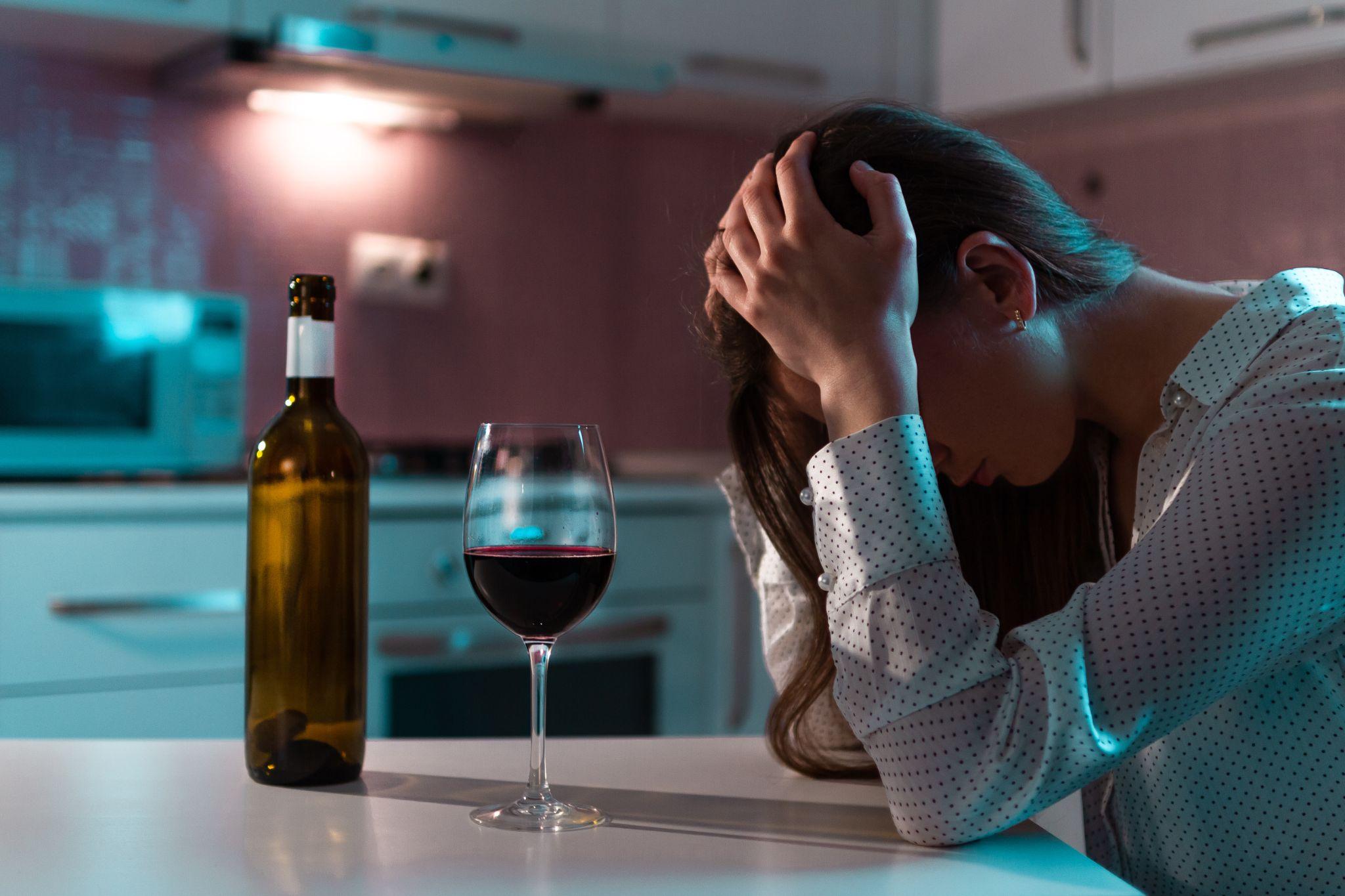Many people struggling with depression drink alcohol to self-medicate. This attempt to alleviate the symptoms of depression can quickly spiral into alcohol addiction, creating a complex relationship between the two.
Understanding this relationship is crucial for anyone who is experiencing these challenges or for their loved ones. The information below aims to shed light on how alcohol and depression interact, the impact of this interaction on individuals, and steps towards managing both conditions.
What Is the Connection?
The relationship between alcohol and depression is deeply intertwined, affecting individuals physically and psychologically.
On a biological level, consuming alcohol can temporarily boost one’s mood by increasing the production of certain neurotransmitters in the brain. However, this solution is fleeting. In reality, alcohol eventually leads to a decrease in these neurotransmitters, which can make the symptoms of depression worse over time.1
Psychologically, alcohol might seem like a refuge, offering a momentary escape from the symptoms of depression. Individuals may experience a short-lived euphoria or numbness, mistakenly believing they are coping with their feelings of sadness or hopelessness. Yet, as the effects of alcohol wear off, the reality sets in that it only masks these feelings temporarily, often leaving individuals feeling even more depressed afterward.
Alcohol as Self-Medication
Many people with depression may not realize the long-term implications of using alcohol for self-medication. Initially, it might appear to offer relief from major depression by dulling the pain or making problems seem less intense. This can quickly become a preferred method of coping, leading to drinking habits where alcohol is used more frequently and in larger quantities to achieve the same numbing effect.
Unfortunately, this cycle can escalate into alcohol misuse or alcohol use disorder, further complicating the treatment of depression. The temporary solace found in alcohol is overshadowed by its ability to deepen the depression, creating a cycle that is difficult to break without intervention.
The Impact on Mental Health
The interplay between alcohol and depression can lead to a significant worsening of depressive symptoms. Alcohol, a central nervous system depressant, can magnify feelings of lethargy, sadness, and hopelessness, which are commonly experienced in depression. For individuals with depression, the initial relief from alcohol swiftly gives way to intensified depressive episodes.
The chemical imbalance caused by alcohol abuse disrupts the brain’s natural ability to regulate mood, leading to deeper and more prolonged periods of depression. Over time, this cycle of drinking to alleviate depression, only to experience worsened symptoms afterward, can become a persistent pattern, making recovery increasingly challenging.
Alcohol’s effect on the brain extends beyond mood regulation, impairing cognitive functions and decision-making abilities. Chronic alcohol use can lead to difficulties in thinking clearly, problem-solving, and remembering.
These cognitive impairments can make it harder for individuals to manage their depression effectively, pursue treatment, or engage in activities that could help improve their mental health conditions. The diminished cognitive function also affects one’s ability to recognize the harmful dependence on alcohol use and its impact on depression, further establishing the cycle of addiction.
Recognizing the Problem
The journey towards recovery begins with the crucial step of recognition. It requires individuals to acknowledge that alcohol addiction and depression are intricately connected, not isolated health problems.
This realization is often challenging, as it involves confronting painful emotions and admitting the need for help. Once this step is taken, the path to seeking professional assistance becomes clearer. Encouragement from loved ones to reach out to therapists, counselors, or rehabilitation centers can be invaluable.
These professionals offer specialized support and can guide individuals through the complexities of dual diagnosis, ensuring that both depression and alcohol addiction are addressed together.
Treatment Options
Effective management of co-occurring alcohol addiction and depression requires integrated treatment. Dual diagnosis treatment programs are designed with this in mind, offering a blend of therapies that tackle both conditions simultaneously.
Medication may play a crucial role in this process. Antidepressants can help in managing depression, while other medications can assist in reducing alcohol cravings and dependency. However, medication is most effective when combined with therapy.
Cognitive behavioral therapy (CBT) and other therapeutic approaches can help individuals understand the triggers of their alcohol use and depressive episodes, develop healthier coping mechanisms after stopping drinking, and rebuild their lives.
Support Systems
A strong support system is central to successful recovery. Family and friends can provide the emotional support and understanding that individuals need during this challenging time. Their encouragement can make a significant difference in motivating someone to seek treatment and stay on the path to recovery.
Additionally, support groups offer a sense of community and understanding from others who are facing similar challenges. Groups such as Alcoholics Anonymous (AA) and the Depression and Bipolar Support Alliance (DBSA) provide a platform for sharing experiences, strategies for coping, and mutual encouragement, reinforcing the individual’s efforts toward recovery.
Lifestyle Changes
Recovery from alcohol addiction and depression also involves making positive lifestyle changes. Regular physical activity, a nutritious diet, and sufficient sleep can have profound effects on mental health, enhancing mood and reducing symptoms of depression.
Moreover, it is crucial to identify and avoid triggers such as situations, emotions, or people that increase the risk and urge to drink. Developing new hobbies, engaging in social activities, or volunteering can offer fulfillment and distraction from the temptations of alcohol.
These lifestyle adjustments, combined with professional treatment and support, create a comprehensive approach to managing depression and overcoming alcohol addiction.
Find a Path Forward from Alcohol and Depression With Lumina Recovery
The complex and intertwined relationship between alcohol and depression means each condition can exacerbate the other. However, with the right support and treatment, individuals can navigate the path to recovery.
At Lumina Recovery, we believe in providing compassionate care and comprehensive treatment through our depression dual diagnosis program and alcohol addiction services.
Contact our team today to guide you or your loved one through this challenging journey towards a brighter, healthier future.
Sources:



